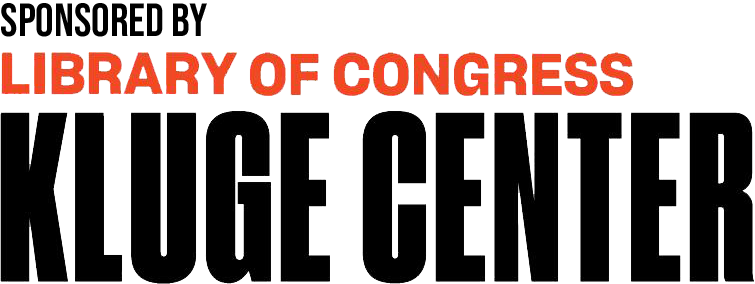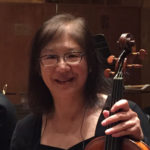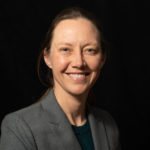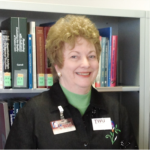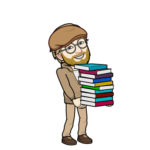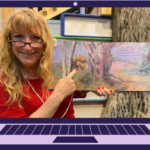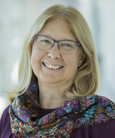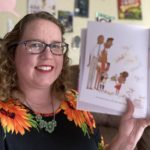Forum Question
In a world of disinformation, social media, and “alternative facts,” how do you identify and vet credible information sources? How do you share those credible sources with students and public library users? What is a librarian’s role in helping the greater community find common ground in shared facts?
In a world of disinformation, social media, and “alternative facts,” how do you identify and vet credible information sources? How do you share those credible sources with students and public library users? What is a librarian’s role in helping the greater community find common ground in shared facts?
Responses
Truth through knowledge
I believe librarians should return to being the curators of information. To fulfill this role, they must undertake training and education to be knowledgeable of subject areas and their sources. Librarians should use this knowledge to build collections (physical or digital) of high quality, reputable resources. They should also be able to direct users to other well curated collections. Librarians who are unable to identify credible sources would be better off seeking a different career.
Read the Full ResponseThe School Librarian's Role in Credible Information
The AASL Standards guide the school librarian's work in teaching media and information literacy skills to their students and also to teach students to value multiple perspectives. School librarians need to update their lessons for teaching these skills. A 2019 study from the Stanford History Education Group (https://purl.stanford.edu/gf151tb4868) found that students' website evaluation skills were "troubling." Their research shows that using acronyms (such as CRAAP) to teach evaluation and rules about 'URLs' does not work. Students need to be taught to pause before sharing, to click on links versus just reading headlines, to think critically, to use lateral…
Read the Full ResponseEthical Use of Information
In academic libraries, the ethical use of information is taught in reference to citing sources, giving authors credit, not plagiarizing, and following copyright laws. Sharing misinformation could also be considered an unethical use of information. Perhaps we should include pausing and verifying questionable information in the same instruction as other ethical information topics. I believe many people do not realize that sharing questionable information is an ethical issue and this may be beneficial to some library users.
Read the Full ResponseIn a world of disinformation, social media, and “alternative facts,” how do you identify and vet credible information sources? How do you share those credible sources with students and public library users? What is a librarian’s role in helping the greater community find common ground in shared facts?
Since I work with K-12 patrons I try to focus on getting students to do the following: 1. Take a "breath" before reacting to news 2. Don't share news stories until you have determined the story is legitimate 3. Be proactive when you share and post news, make sure it is from a valid source. The vetting process can take several avenues, I tell students to practice "lateral searching" to track down the source of news and media outlets. I also encourage investigating media sources on Wikipedia and tell them to pay special attention to the links in the bib…
Read the Full ResponseHow I identify and vet credible information sources: an example
Others have already posted about methodologies for evaluating information, especially with regard to information published on the web. I’d like to chime in with an example of a recent interaction in which I used a combination of lateral and vertical reading.
Someone asked me my views on election fraud. When I replied that I didn’t believe there was any significant fraud in the recent election, the person responded with generalized statements and accusations. Here’s an outline of what I did in response.
1. Focus on specifics, don’t respond to generalities. I asked the person to give…
Reflection and Action
There are so many moving parts with which to work in helping the greater community find common ground in shared facts. Beliefs and community values, social/family connections and identity/place play a big role. Shared facts in a community will always rub against or coalesce with those in mind. To be effective, the public library first needs to build trust as a respected and reliable resource within that community.
Opportunities for the public library to build trust as the go-to place for the most reliable information include engaging/partnering with community organizations, grass roots networks and schools, and using social…
Start'em young and use their tools
I have worked in all types of libraries...academic, public, military, and public school. Teaching information literacy is crucial, but I also think it's is vital we use the tools our patrons use. I found that my high school students responded much better and demonstrated deeper understanding when I used social media apps in my lessons rather than the typical tools of a librarian. I still used databases, etc, but my students only engaged when I first used the apps like twitter to demonstrate the credibility (or lack thereof) and authority of tweets on a variety of topics. We talked about…
Read the Full ResponseComprehensive research guide for media/news literacy resources
I've learned about so many new-to-me resources through posts on this Forum. It has been great having this opportunity to learn from all the librarians here! It got me thinking about LibGuides--or other research guides--for media/news literacy resources. I'm aware of some that focus on specific grade levels or subjects, but not any that aim to be truly comprehensive and compile quality, up-to-date resources for media/news literacy (as an umbrella term). Is anyone aware of any? I'd appreciate any recommendations.
If this doesn't yet exist, I'd like to suggest it as an idea for the thought leaders…
When information clashes with disinformation
I was recently reflecting on a conversation I had with one of my student a short while back. I was lecturing on a topic of general interest when a hand went up. "Where did you get that from?", asked a student. The "that" in which they were referring to was a particular source of information on the topic at hand. Granted, I was somewhat proud that this student was asking a preliminary yet vital question in the vetting process, but I knew where the conversation was heading. "That's not what I heard" was their next comment.
The…
Can Resources Pass the Litmus Test for Validity?
Identifying reliable data relies directly on who authored the information. I recently attended an online training on Zoom. One of the presenters spoke about compiling information for a speech presentation. She remarked, "One does not have to go to the library when you have all the information you need on the computer." Yes, it's convenient to access from home; however, is the data obtained from a reliable resource? Internet websites do not necessarily provide us with the most authoritative information.
Primarily librarians are the best skilled in knowing the criteria for trustworthy information. They can create library website…
Visual literacy is a part of finding shared common ground
Hello again everyone!
I'm delighted to be part of the cohort of librarians attending the American Association for the Advancement of Science annual meeting this week. yesterday I attended a virtual session on COVID Misinformation presented by a university press officer, a freelance science journalist, and a science journal publisher. The science journalist, Wudan Yan, shared Michelle Nijhuis's "The Pocket Guide to Bullshit Prevention,"
(https://www.lastwordonnothing.com/2014/04/29/the-pocket-guide-to-bullshit-prevention/) which I checked out after the talk. Nijhuis wrote this piece in 2014, and says the guide is how journalists prevent being "wrong in print" -- publishing a…
School librarians build research & critical thinking foundations
This is a great and timely question for librarians. I have worked in a public library, but my full-time library career has been as an elementary school librarian. Many of the issues we see with adults and working in the public library start at the earliest stages of inquiry for students. The top five things I think we can do are as follows:
1. We have to ensure and continue to advocate that licensed librarians are in schools in every state and that these librarians have access to training and professional development, and that librarians are able…
Librarians, Patrons & Credible Information
I identify credible sources through electronic databases and consultations with other librarians.
-
I share credible sources with students using I for graphs and literacy lesson partnerships with campus staff.
-
A librarians role in the community is to provide easy access to credible resources, reading materials, and platform evaluation skills.
Reliable Sources
In the best of times with information availability, social media's worst of times can become misleading. What is a rumor mill? Rumors, like fire, need oxygen to quickly spread. How do you prevent a rumor, a fire out of control? A controlled burn. Similarly, disinformation needs fact-checking.
Begin with the source- is it reliable? Are there multiple resources citing credible findings?
In my library world, as one resource, I use Common Sense Media to help support the families I work with in my community (https://www.commonsensemedia.org/). Secondly, to fact-check, I rely on National Geographic, Britannica, and trusted…
Disinformation small and large require commitment and perseverance
Anyone can end up down the rabbit hole, lost and confused - from students just starting off in the "land of information" to experienced librarians and information professionals. As a public librarian I have to make sure I stay cognizant of this fact. When I practice credible source vetting it is essential that I always tell my customer what I am doing. This is a direct, somewhat subtle but consistent way to educate public library users on a day to day basis and can be used with the simple to complex reference and general library needs.
…
School librarians have a key role to play in creating an informed citizenry — one that finds common ground in shared facts.
I. SCHOOL LIBRARIANS ARE RESPONSIBLE FOR SELECTING CREDIBLE INFORMATION SOURCES FOR THEIR PRINT AND DIGITAL LIBRARY COLLECTIONS.
It is important for librarians to clearly understand the difference between selecting information sources that are credible (a key step in the collection development process) and selecting information sources that express only certain views (censorship).
When developing a nonfiction collection, credibility is the most important criteria to consider (along with price, relevance etc.). School librarians do not have the time to thoroughly research each item they select for their collection. However, school librarians do have time to…
Martina Kranz
1. In a world of disinformation, social media, and "alternative facts," a librarian identifies and vets credible information sources through examination and study. A librarian must determine who published the information and if the individual or organization possesses professional credentials or possesses some knowledge about the subject through personal or work experience. Even if the individual or organization possess professional or personal credentials, this does not necessarily mean their facts or opinions are the best. After all, sometimes people seek second opinions for a medical diagnosis, so why not seek other opinions on information or facts. Well-researched facts and data…
Read the Full ResponseSelective facts, full context and the Super Bowl
As I wait for my slow cooker to magically create a pot of my famous Super Bowl chili, I find myself surfing the internet for news on the Kansas City Chiefs, The Tampa Bay Buccaneers, and their respective players. It always astonishes me how sports writers can justify a particular stance by presenting the selected facts needed to do so. "Player X is unreliable because he has thrown this many interceptions", yet we neglect to mention the factors that led to those interceptions or how they pale in comparison to his touchdowns. "Player Y is incredibly injury prone", yet we…
Read the Full ResponseReveal the Danger
Teaching info lit at community colleges for 15 years, we found that revealing dangerous sites, e.g. Martin Luther King hate sites, catch the attention of some. For every LibGuide we did, we listed credible sites and a path to take.
But equally, maybe even more importantly, we had to convince the faculty members, most of whom were adjuncts, to pay attention to sites used. The bibliography is of equal importance to the paper. Unless they grade based on quality of sources, all our teaching is for naught.
Humanizing Opposition
It seems like everything is politically polarized lately. Everything is us versus them. Frequently, language is used to portray the other side of an issue as an enemy or less than human. This cannot possibly lead to constructive debates on issues and has probably resulted in several uncomfortable Thanksgiving dinners over the last few years.
Could libraries provide a safe, civilized, and calm way to meet and greet people from both sides of the political aisles to have a conversation? We could provide a space and opportunity to let people get to know each other as real…
ALA Banned Book Week
Back in the late 1980's ALA selected scientific literature as the subject for their Annual Banned Books Week. At the time, I was a science reference librarian at the University of Georgia. With my Director's wholehearted support, we requested the 'crate' of banned science books and planning materials. Our display at the entrance of the Science Library provoked discussion and brought various facts to the campus. I would suggest that the Library of Congress, in conjunction with ALA, create another 'banned books' campaign and combine it with additional materials to address disinformation. It has been a very long time since…
Read the Full ResponseAddressing Misinformation is a Constant
I am keeping notes weekly about encounters I have with those willing to jeopardize good faith efforts toward debating solutions. My site is www.knowledgeresources.info and it is my contribution to the effort to have people really think about their actions. We all need to center our thoughts and opinions on reality. Do we really know the targets we are aiming to when we argue? Do we have a purpose to our discussion, i.e. change?
Read the Full ResponseImportance of Media Literacy -- Washington Post Article
Yesterday the Washington Post published an article on its website that has some relevant points for our forum. Here's the reference:
Villegas, P., & Knowles, H. (2021, February 5). After Capitol riot, desperate families turn to groups that ‘deprogram’ extremists. Washington Post.
https://www.washingtonpost.com/nation/2021/02/05/desperate-families-are-seeking-groups-that-deprogram-extremists/ And here are a few key points:
Quotation: "Brian Hughes breaks radicalization down into three stages: the people “circling the drain” and just considering extremist ideas; the “hard core” like those who stormed the U.S. Capitol; and the people between.
The best time to step…
News vs. opinion
Interesting story on NPR this morning about the software company that is suing Fox News and three of its evening entertainers for allegedly spreading malicious misinformation about the company. Fox's defence is that the evening entertainers were engaging in "clear opinion."
As has been discussed elsewhere, one place that could be an easy starting point is to educate children to adults the difference between journalistic reporting and opinion. Need not be any censorship involved in categorizing the information as false news or not, but simply teaching people to recognize when something is news and when something is…
Google Money
If part of your response to the "How do you..." questions in this forum is that your library requires more funding to combat misinformation, you might find this initiative very interesting... https://www.engadget.com/google-covid-19-vaccine-misinformation-funding-google-news-initiative-185810729.html What is librarian's role in securing and utilizing funds to find common ground in shared facts?
Read the Full ResponseCollect Resources and Share with both Staff and Students
https://padlet.com/mvergult2020/jklol46hyzucpuhb I have curated a few resources to share. I also did a PD Session for staff at the beginning of they year to teach about Fake News. I attend lots of session to keep myself educated and informed. I print large posters and hang them in my library about Fake News and reliable resources. I do a lesson for the students every year on this topic as well.
Read the Full ResponseTeen Empowerment and Engagement is Key
I feel that it is a great set of questions: thinking about how libraries help disseminate credible information and what role do we play in helping the community find common ground.
As we all know, libraries should be neutral and share history, facts, literature, knowledge and in contemporary times, tools so that the public can have all the information they need to make informed decisions. In this day and age, the reason that people often believe in misinformation and disinformation is due to a lack of researching the facts on their own. Even though some think…
In favor of freedom of expressing
I would not like to see Librarians become censors, in the guise of opposing "fake news." I would oppose Librarians becoming like Google and Face Book: Google manipulates Internet search results and Face Book cancels accounts, and it is "left" leaning sites which have been targeted. The Constitution of the United States guarantees freedom of speech and freedom of the press.
Librarians should never let themselves be placed in the position of deciding what is "fake" and what is "true," or what is accurate information and what is "disinformation." That is not the Librarian's role. Every…
Background
For the past several years I've worked in Title I schools with young information hounds, and my role has been primarily to introduce the concept of facts/information using our district and state databases. I trust these as credible sites but we discuss how to vet information using multiple sources of information. My biggest concern is developing enough background knowledge for our students to be literate in many areas. The lack of social studies instruction and emphasis on high stakes testing has resulted in many students having little to no foundational/basic knowledge to make informed choices. I am teaching more than…
Read the Full ResponseLibrarians Help Others Find Facts
Librarians choose the best quality, most validated sources of information to help others excel in academia, public, corporate, governmental, and other concerns. Librarians guide people through the maze of data, past tempting & shocking inaccuracies to the light of truth in whatever subject is desired. Librarians understand that everyone needs information in different ways, so we tailor the information to the requestor's needs, providing simple to highly complicated results in different languages, formats, and packages, so the requestor is satisfied that they have the best resources available.
Read the Full ResponseUse fact-checking sites
In many cases, it is not necessary to go through the process of reviewing the accuracy of a source, since there are reliable fact-checking sites that provide the legwork for us. Use Snopes, factcheck.org, PolitiFact.com or the Washington Post Fact Checker first. However, even if the information is found to be factual, citizens must also consider the rest of the CRAAP test (or whichever reliability testing system you use) to determine whether the information is suitable for one's needs. Is it current, or is there more current reliable information on the topic? Who is the author, and are their credentials…
Read the Full ResponseDISCERN: A Library Proposal to Combat Disinformation
Contact me at eap54@rutgers.edu for the research accompanying this proposal.
Proposed Public Library Service:
DISCERN (Disinformation/Information: Critical Evaluation of Real News
Online as real-time community events available on Zoom or YouTube videos:
designed to draw a diverse cross-section of people.
Points included in DISCERN:
1. Brief history of "Fake News" as a concept, its origin in Nazi Germany.
2. Consider the source: a “friend” sends you a video, a post, or a link.
3. Are you reading/viewing content from a known news media source? Which one?
…
DIY research videos
It would be cool if there was a resources where people could see how to google important questions.
I think using google is a skill, and I see far to many low income people struggle to use this tool, while the kids who grew up with computers are far more advanced.
I would like to see a series of videos where someone starts with an important topic - and then we can watch (from the perspective of their computer screen w/ narration or other learning methods) how they word the google search,…
Online presence
The emotional and reactive sharing of misinformation is shared even when people are open about their uncertainty about the source ("I don't know if this is true but it makes me so mad!!") Judging by behaviors over the last decade, people aren't going to stop and fact-check every article they scroll by, even when sources like Snopes and Politifact are widely known. My conclusion is that change hinges on treating the sharing of misinformation as dangerous; not "I'll share this in case it's true" but "I can't share this in case it isn't."
From a public library perspective, we…
Librarian's role
Ways I vet credible information sources is fact-checking resources. There are professional databases that can be used to search credible sources. These sources are shared via reference and information sources.
Librarians play a key role in society. The resources and services they provide offer opportunities for individuals to be creative and innovative. Librarians are resources for education, social engagement, and support literacy. Building healthy communities is another way librarians help the community grow. Librarians are important to neighborhoods that are underserved and struggling to maintain a healthy home environment. Providing shared facts to the patrons is…
Alternative histories
Aside from being a librarian, I am also a professor of history at a community college in NY. As many of my students have discovered, historical studies are full of alternative facts and narratives, most of which are produced via secondary sources. I use instances of historical discrepancies as a learning opportunity for students to interpret the past and become better suited to vet the present. This is done through the study of primary sources. Through lectures, discourse and relatable examples, students begin to see the connection between primary sources and history, while also grasping the connection between present-day reporting…
Read the Full ResponseWhat is a librarian's role...?
The librarian must play a leading role in helping members of the community find common ground in shared facts. This means we aren't the dispensers of "the facts" but rather the initiators and enablers of the processes that lead to common ground. We partner with others: classroom and subject instructors, skilled facilitators, etc. Our role is essentially educational -- teaching information literacy skills (with a deep understanding of information literacy) to enable community members to evaluate purported facts for themselves; and skills of communication and dialog to interact constructively with others.
Read the Full ResponseSharing credible sources with students and public library users
Encourage the use of vetted databases as a primary information source. Provide curated lists of reliable information providers. Post charts of media bias. Information literacy ads could be posted on social media among the populations that are most susceptible to accepting disinformation as the truth. Posters such as one of Abe Lincoln with a quote next to it,
Read the Full ResponseLibrarian’s role in helping the greater community find common ground in shared facts
The roles of the librarian depend a great deal on their specific position. For example, a high school library media specialist may be in a good position to collaborate with classroom teachers and create digital citizenship and digital literacy curriculum and lessons for students who are a captive audience, while most public librarians should consider their points of contact with vulnerable patrons and maximize the educational opportunities therein. An even more direct method for visual outreach than providing media bias charts is to make factual statements about the documented bias of sources that have been shown to have fictitious or…
Read the Full ResponseSlow Progress is better than no progress
It amazes me how quickly misinformation or disinformation will spread while credible facts often trickle through society at a much slower rate. As trusted resources for reliable and accurate information, one of the biggest challenges for libraries with regard to "fake news" or "alternative facts" is retraining our communities to turn to us when they want the facts. Our library foundation is in its sixth year of an Awareness Campaign that attempts to tackle this and promotes library staff as gateways to accurate information. While the campaign is making progress, it is slow. I have to remind myself that "slow…
Read the Full ResponseReceived a literacy grant from our state library
Last year our public library, the Daniel Boone Regional Library (DBRL) in Columbia Missouri, applied for and received a literacy grant from our state library and the IMLS. We argued in the grant application that news and media literacy is not just tangential to literacy in general, in this day and age it should be part of a broader literacy curriculum.
The program has been a real success! After a slow start due to Covid, we moved everything to the online seminar format and are now reaching out to organizations and civic groups throughout our service…
 Deb B.
Moderator Pick
Deb B.
Moderator Pick
It's complicated, but scicomm provides helpful lessons
In addition to being a librarian, I'm also a science communicator. SciComm and public engagement literature on misinformation draws on behavioral and cognitive science to examine how people make decisions about what information and information sources they trust.
The good news is that libraries and librarians enjoy a good deal of trust (see Pew research, for example). So we definitely can use that trust, and our ability to have relational, rather than just transactional, engagement with our patrons, to contribute to public understanding of misinformation. I recently put together communication tips and resources for Long term care…
 Jim D.
Moderator Pick
Jim D.
Moderator Pick
Three Threads for Systemic Change
These questions are good, and it’s been a thoughtful mix of ideas and discussion.
Please also consider the opportunities for us to effect systemic changes. I suggest three threads.
1. Develop and Strengthen Partnerships. Align a coordinated national library-based effort with other industry leaders already on a parallel track. Two examples of potential partners: Poynter Institute - https://www.poynter.org/about/ and FactCheck.org - https://www.factcheck.org/about/our-mission/ Bottom line: let’s not reinvent or duplicate what’s being done in this space, but find ways to work collaboratively.
2. Make Facts Appealing. Leverage visual,…
AllSides
Hello!
One appreciated resource at the public library reference desk where I work is AllSides as it provides coverage of any given news story from multiple perspectives. Looking closely at the various articles listed for any given story reveals how different authors and organizations present the facts (often an education all on its own):
https://www.allsides.com/unbiased-balanced-news AllSides also provides a media bias chart which is helpful when one wants to vet an unfamiliar source: https://www.allsides.com/media-bias/media-bias-ratings Finally, they are fairly transparent as to how they create the media bias chart, even accepting user…
Assistant Professor
'School librarianship' has a different mission than that of public librarianship. Often, school librarians fail to prepare K-12 students "to become critical thinkers, avid readers, skillful researchers, and ethical users of information." (AASL, 2010) By failing to live up to this mission, school librarians often seek to adopt the mission of public librarians. (This, in my opinion, is also a failure of graduate preparation programs preparing 21st century information professionals. One-sized curricula does not support all types of librarianships.)
What is the difference in the stated missions? Primarily, school librarians are held accountable for K-12 learning; while…
Director
I am disheartened to see ALA taking what appears to be openly one-sided positions on various political and cultural topics as evidenced in the articles selected for ALA publication. How will we come to a place of unity and understanding if one of the biggest apolitical entities in the country is taking part in causes that are divisive in nature. Our mission and the thing that drew me to librarianship was to provide the best quality information and resources to our communities uncontaminated by our personal views allowing individuals to make up their own minds. When did that stop being…
Read the Full ResponseMore than vetting credibility
The problem of mis/disinformation runs deeper than just vetting sources. So much of how we interact with information is connected to identity. It is connected to belief and worldview. As librarians, we need to build a better understanding of how we, as people, process information and help our communities recognize their own epistemological stances. Reading, watching online videos, interacting on social media are all information interactions. These interactions are not just cognitive processes but they are deep interactions that connect with who we are. Check lists and "better" facts are not going address the challenges before us. Actions such as…
Read the Full ResponseInformation Gatekeepers
I have always felt that libraries are the gatekeepers of information. One of my favorite quotes is from Neil Gaiman who said, "Google can bring you back 100,000 answers. A librarian can bring you back the right one." Critical thinking is very important, as is a healthy dose of skepticism. I love sharing the databases in Inspire (Indiana's virtual library) where they can find peer reviewed journal articles, as well as explaining what databases and a peer reviewed journals are! Kids are going to look online for information; they need to know there are other sources besides Google.
Read the Full Response Bradley W.
Moderator Pick
Bradley W.
Moderator Pick
What About Truth?
In times of social distress—either localized or widespread—it seems librarians are so focused on service to their communities that they have trouble looking beyond whatever instrumental, technological, or administrative solutions they bring to bear on the immediate situation. For at least the last five years, librarians have been in a state of perplexing triage in the face of an epistemic crisis that has become a matter of life and death with the pandemic. This crisis has also severely exacerbated community divisions along political and cultural lines, and threatens to undermine free democracies in favor of authoritarianism around the globe. It…
Read the Full ResponseAssociate Professor/Librarian
Teaching critical thinking is paramount in helping the greater community find common ground in shared facts.
Read the Full ResponseInformation Sources
When it comes to identifying credible information sources, I don’t know if there’s much more I can add to what’s already been said regarding the steps one can take. Determining the source’s authority/credentials, checking references and dates, verifying claims with multiple sources, etc., are all important ways to vet a source.
Vetting steps aside, it also helps to be aware of common forms misinformation can take. Knowing that pretty much anyone can create a website or doctor a photo, and that falsehoods can spread like wildfire on social media should give us a healthy level of…
Objectivity in collection development
It has always been my policy in collecting archival and historical records to try and collect all sides of an issue as you cannot have an intellectual argument for or against something with the converse of any argument not being present. This can be difficult in todays times as so much of what is seen today is simply vitriolic with a purpose not to further a philosophical point of view but a personal gain unrelated to the topic. I still feel this material should be collected as it represents a place and time and can be presented in guides and…
Read the Full ResponseAre We Responsible for Representing All Viewpoints in Collections When Some are Clearly Misinformation?
I really struggle whether to purchase self-published or agenda-based publisher materials that clearly have no basis in fact. Ethically, should we have these materials in our collections? Is creative cataloging an easy out? Titles get the push on fringe websites, podcasts, or biased news sources so we get suggestions for purchase. Are we exacerbating the problem by providing access to known misinformation? It'd be helpful if ALA could come up with some guidelines for how to deal with these resources.
Read the Full ResponseTeaching Critical Thinking
People need to know that they are capable of determining whether a source is credible. They don't need others (or worse, machines) doing it for them. I tell my students (adults ages 18-80+) to practice emotional skepticism before sharing stories, memes, or tweets. This means that they should consider the source of the information, see if they can find it verified elsewhere, and read the story themselves before sharing. They also need to know how to look outside the story for more information. What can they find out about the writer or publisher that isn't part of the PR for…
Read the Full ResponseAmericans Deserve the FACTS
Considering the multifaceted challenges confronting our world today, including media professionals and social media platforms engaging in and promoting disinformation. I believe librarians need to come together and develop an action plan to create a news media outlet that fellow Americans can count on for verified factual information. I believe it will take a collective force of librarians to come up with a plan to seek verified pertinent factual information and find a platform to distribute information.
Read the Full ResponseLibrarians As Information Literacy Educators
I am SO glad this topic has finally gained the prominence it deserves, which is among the top issues of our day. I am a teacher and MLIS student who is making a mid-life career change to go into academic library instruction because I feel so strongly about the importance of information literacy education. I have been passionate about this issue for a long time. I believe that librarians hold the keys to this issue, in our roles as educators and facilitators of information literacy skills. My goal is to empower students with the knowledge and skills necessary to access…
Read the Full ResponseA Flexible Model for Information Policy
I actually used Dr. Allen's work in a soon-to-be published chapter for a handbook on information policy. Her model for flow dynamics model provides an excellent foundation determining which sources NEED TO BE VETTED and holding those who have large audiences to a higher standard
Here is a short excerpt:
These three factors—volume, velocity, and viscosity—taken together provide a foundation for shaping an agile information policy for freedom of expression. Policy-makers who work, for example, at a social media company can consider various thresholds for number and frequency of posts, the number of followers,…
Deep history of credible health sciences evaluation...testing a way to inject it into community health
Back in 1995, when the web browser was just emerging, the World Health Organization launched Health on the Net. (https://www.hon.ch/en/) The original intent was that health information websites had to maintaiin and certify that their intent, presentation, and financing met a series of criteria:( https://www.hon.ch/en/certification/websites.html) authority- Who is the editorial tean and are they verifiable?
complementary- does not try to replace the physican-patient relationship
confidentiality- meets legal requirement for personal data
attribution- sources of health content are dated and verifiable
justifiability-information is objective, balanced, and transparent.
transparency-site is easy to use,…
 Samantha A.
Moderator Pick
Samantha A.
Moderator Pick
Information belief systems, information emotionalism, information empathy
A librarian's role must shift to acknowledge how belief systems shape information seeking and information retention.
A librarian's role must aim to help people acknowledge the beliefs that they bring to the table, and how those beliefs shape the information that they seek and therefore the information that they find.
A librarian's role must be skeptical and question what "common ground in shared facts" means or even looks like for the most disenfranchised people, as "common ground" that benefits "most" might harm people.
The question prompt states that our…
Issues with nonfiction designation
One issue I have when teaching teens how to use the library and library resources is the nonfiction section. In the past, there was the pat explanation that fiction is made up and nonfiction is fact, but that isn't the case. Even further, patrons I have spoken with (and even something I believed as a kid growing up) have strong belief that the library only has items that are "true" in nonfiction sections -- that libraries are in the business of protecting them from false hoods. During 2020, the big question that kept coming up for me -- through ALA,…
Read the Full ResponseLove More To Reach More!
Hello Friends, I am a devoted champion of critical thinking skills but let's also create meaningful partnerships beyond the library & collaborate more to reach more! Chipping away at disinformation has always been at the heart of our democracy & requires the responsibility of many. However, it will now take all of us to show that LOVE is ultimately the answer by creating more equitable, just & compassionate communities. Let's start there & bring more compassion, respect & balance in this world that is totally out of balance & as adults, promise to end this eternal heartbreak & suffering. Mother…
Read the Full ResponseTeach skills!
As a Teacher Librarian, part of my job is to teach students the skills they need to detect misinformation and vet credible sources. I am currently part of a Washington State organization called Teachers for an Informed Public focused on teaching those skills to students. The group holds monthly Zoom meetings open to any educator that focus on how we teach students the skills needed to evaluate information and sources.
Lessons created by TiP founders are available through WA State's Open Education Resource for any educator. They include lessons that ask students to evaluate their social media…
Credibility Anchors and Thought Leadership
Our communities need to be able to rely on libraries and librarians to be "credibility anchors" and "thought leaders" with regard to credible information sources and shared facts.
But how can we accomplish this?
Libraries and library professionals should model and deploy disinformation-busting strategies like:
1. Engagement with and countering of "post truth" ideas by publicly and transparently fact checking harmful narratives using credible information sources.
2. Design of multimodal guides and messaging (on sites like library websites, newspapers, Twitter, Reddit, Facebook, LinkedIn, YouTube, etc.), authored by dedicated…
Librarians and Disinformation
I use a number of tools and methods, including SIFT (Stop, Investigate, Find and Trace), sites like Snopes, Politifacts and Factchecker. I teach a 5-credit Critical Information Studies course at the community college where I teach and learning about how to find credible sources and how to evaluate sources is part of the curriculum. We discuss the role of social media, biased search algorithms, and clickbait sites in the perpetuation of misinformation. We learn ways to become better information consumers. In addition, our library features a number of guides to finding credible sources and media literacy. The librarians here also…
Read the Full ResponseConspiracy Theory Debunking
One of the worst sources of misinformation on the web are conspiracy theories. Unfortunately, many of them are espoused at high levels of government. Librarians have to be the "mythbusters" for people who get sucked into sources of those conspiracy theories - the key is to present people with reliable information from verified sources (for example in the health field: WHO and the CDC.) Another task is to educate people on their source consumption - teach them to ask themselves questions about what they're reading. (Who wrote it? Is the source reliable? Are they generally accurate? Do they have an…
Read the Full ResponseWe Need Help Now
In 1962, John F. Kennedy said, “We enjoy the comfort of opinion without the discomfort of thought.”
Nearly 60 years later, instead of having risen to the challenge of becoming better discerners of information, we use unvetted social media posts, search engines that feed us information based on algorithms we help create, and endless hours of commentary (not news) as the foundation for our beliefs and opinions.
Libraries need to be leaders in the effort of reversing our living in a “world of disinformation.” We can help do that by ensuring we…
Commuication, Civic Engagement & Re-Localization
Librarians can address fake news through communication, civic engagement and re-localization
COMMUNICATION
Studies of climate change deniers have shown that logical arguments don't work and that repeating disinformation can re-enforce false beliefs. Communication to combat false information needs to identify the fallacy and avoid repeating the lie. However, librarians need to understand that false information is not accidental-- weaponized disinformation is a deliberate strategy that is being used to confuse people about the truth, persuade them to vote against their own interests and sabotage democratic forms of government. Big money and political forces behind disinformation are…
Critical Literacy and Representation
It's long been accepted that we must ensure that we are looking at information and considering evidence from various sources (i.e, "both sides," by which we usually mean both the pros and cons of a topic, or, these days, both conservative and liberal opinions). But critical literacy (which is related to, but not the same as, critical thinking) is a useful theory that calls us to do more than this. When we look at information (and disinformation) from a critical literacy perspective, we consider issues related to power and privilege. We ask questions like: Whose views are prioritized? What and…
Read the Full ResponseFalse Equivalence and Binaries
False Equivalence: People (kids and adults) struggle to understand that although it's important to look at information and consider evidence from various perspectives (AKA biases), not all information, resources, or "evidence" are worthy of serious consideration. The "you must look at both sides" mentality can lead individuals and sometimes even credible media sources to give way too much air time to information that has already been thoroughly debunked, all in the name of fairness. False equivalency can lead people to doubt facts (or theories that have a preponderance of evidence) because offering an opposing point of view can make it…
Read the Full ResponseLet's talk about sharing...
How do you share credible sources with students and public library users?
This question depends on context, really. Most interactions between librarians and students/patrons involve the later willingly deferring to the authority of the former. However, some cases involve students/patrons with a post-truth mindset who simply wish to utilize librarians to retrieve sources for their specific validations. Going back to the aforementioned question, how do you share credible sources with students and public library users in this regard? Do you confront a misinformed stance, especially one that is grounded in biases and ideologies? The simple answer…
Coordinator: Educational Resources Lab, Oakland University
I often suggest that patrons double and triple check their information from several reliable sources, particularly seeking out sources that might not agree. It is important to get all sides of a picture. I suggest that if the information is related to another country or area of the world, that they try to find a source from that part of the world, to see how the information is presented. I suggest guarding against relying on social media, blatantly partisan sources, and hearsay.
Read the Full ResponseInformation Evaluation, Literacy, and the Media
This has come up a couple of times, but there is an intriguing role for libraries to partner with journalists and the media to look at how the media actually works. It has been suggested that librarians take a closer look at media studies, but beyond that, a conversation with journalists about what their job actually means could lead to programming and lesson plans to help the public understand what they are reading/seeing.
To be transparent, I was an undergraduate journalism major who later became a librarian. I understand intuitively from being in the news business the…
Doorway to Knowledge
At the Kansas City Public Library, we are a doorway to knowledge for all people in our community. We know that we need to be available to help our community navigate ecosystems of information, so we have started a resource guide for our patrons to use. Calling on the expertise of The News Literacy Project, the NewseumED program, and others, we will give our community tools to distinguish fact from fiction, distinguish reporting from opinion, and how to fact-check what they are seeing, reading, and hearing. We are in the process of building a training program for our staff so…
Read the Full Response Andrew W.
Moderator Pick
Andrew W.
Moderator Pick
We need to do a better job of looking at media studies in LIS Education
This is a very timely conversation being the same month as the insurrection at the Capitol, but this is something I’ve been thinking about since I was an undergraduate journalism student a few decades ago. In my own experience, the biggest shortcoming of both my Journalism education and MLS education was that neither spent much time looking at the socio-economic aspects of information. While we covered small presses for a week in collection management, and a bit about intellectual freedom, we need to go deeper at looking at information from a critical lens. I think schools do this now in…
Read the Full Response Jessie S.
Moderator Pick
Jessie S.
Moderator Pick
Labels matter
Libraries are a binary world of fiction and non-fiction. But the real world is not so black and white. It is not always clear, sometimes the edges are blurred.
The increasing popularity of misinformation in pop culture and mainstream media may mean we need to rethink how information is labeled. Misinformation is sitting on our library shelves, undermining our efforts at bringing people the truth. For example, if a library user Ancient Alien theory in the non-fiction section of the library, they might assume it is valid information. Ancient Aliens might seem harmless, but its thinly…
Effectively using tools
Like many others have mentioned, I use tactics like lateral reading and choosing sources that I know are established to identify and vet credible sources. I look for biased wording and author motivations when examining information. I follow accounts I trust on social media and I question the things sent to me from friends and family who are less likely to forward/retweet responsibly. It would be great if there was a single location for finding the truth, fact checking, and addressing conspiracy theories, a 1 stop shop. That would be a gigantic undertaking and require constant updating, but it would…
Read the Full Response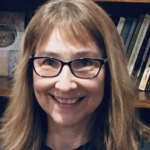 Maggie B.
Moderator Pick
Maggie B.
Moderator Pick
Be Skeptical . . . But Not Dismissive
As a middle school librarian, I find that many students fall into one of two categories: they believe almost everything, or they believe almost nothing. Everything is true, or everything's a lie. Facts are self-evident, or facts are impossible to divine. Reality is absolute, or reality is whatever you want it to be. It's difficult to teach (or convince) someone how to walk a line between these two extremes; to be skeptical without being entirely dismissive of even the possibility of credibility.
15 years into my career as a librarian, I see more and more students falling…
High-Profile, National IL Campaign that Leverages Public Trust in Librarians
Problem: The growth in the dissemination of disinformation online coupled with inadequate information literacy (IL) skills among the general population of Internet users, creating a threat to democracy.
Suggested Solution: The seriousness and magnitude of this problem call for bold, large-scale action that is in the public interest, such as the following: a national information literacy program, targeted to all members of the public, DESIGNED BY LIBRARIANS, and supported by a high-profile, multi-media marketing effort to raise public awareness. Ideally a consortium of public and private organizations would come together to facilitate the program, led by…
 Paris K.
Moderator Pick
Paris K.
Moderator Pick
Whatever happened to Truthiness
Hello everyone! I love reading all these great ideas and I’m glad I get to be a part of the discussion.
As other folks have already discussed, identifying credible sources can involve a lot of trust. As someone who trusts established news media I will usually assume that articles found in The New York Times and Washington Post are credible and full of factual information. My personal favorite is NPR. Incidentally, I’ve known some conservatives who dislike NPR for supposed liberal bias and I’ve got a few leftist friends in Minnesota who facetiously refer to the local…
Information Literacy Instruction Ideas
I identify and vet credible information sources by first searching for references and if the source contains references then can the sources be traced back to the original source? If its a website, for example, verify if the site is a credible source, do the articles contain references, are they able to be traced back to the original source, and were the sources written by experts in the field? Are the links still viewable or are they missing? Were they peer reviewed? I would share those sources in the form of citations that they [patrons/others]can trace back to the original…
Read the Full ResponseMoving Beyond the Call for Identifying Fake News
I think one of the growing problems with false information is how closely it's tied with the radicalization of (typically) white and/or male viewers.
A big thing we need to talk about, now that it's become so wide spread, is deprogramming.
There's an excellent youtuber that's doing work about it, going point for point debunking wild claims, and her channel is called contrapoints
https://www.youtube.com/user/ContraPoints Thought Slime is also doing work to combat extremism and provide engaging content
https://www.youtube.com/c/ThoughtSlime/videos While fake news is still a concern, we need to take extra…
No More Doom and Gloom
This may be controversial, but I'm not sure I agree with the doom and gloom part of the premise: "After all, it is no longer easy for citizens to identify credible information, engage in legitimate debate, or counter disinformation."
It's NEVER been easy to do these things, and now I think it's just more exhausting. Information (true or false) spreads faster, and the speed exacerbates what has always been a challenge into a phenomenon we're calling fake news. The tip of an iceberg.
For the librarians:
Q1: Trace information source. Pool…
Collaboration Across Sectors
Critical thinking about not only the evaluation of information, but one's responsibility as a citizen to be ethical in the creation and dissemination of information, is now clearly an essential component of lifelong learning. As such, strategies for encouraging the creation, evaluation, and sharing of credible sources (in all media formats) must now be shared not only through the instructional programs of school libraries and public libraries, but also academic libraries and special libraries (and, I would argue, archives and museums). The librarian's role in this is not only in creating programs that promote critical thinking about sources, ethical creation…
Read the Full Responsebeyond the sniff test
While this doesn't specifically address spotting fake news, this is one of the intentional ways in which we are attempting to build the critical thinking skills necessary to do that.
We use a simple protocol to identify and vet primary sources, based on similar protocols that you would use for any kind of inquiry activity: observe, describe, question, research, make inferences, repeat as necessary. This is easily scaled for age, discipline, and activity. (It's part of an effort on our part to define and create a school-wide critical thinking protocol that everyone can use. Still in the…
The Intelligence Trap
An important tool in delivering credible information is to not be rushed in the vetting process. Most of my memorable mistakes have been made when I too little time and attention were given to the process.
One of my favorite sources for sharing the process of vetting useful information is, "The Intelligence Trap", by David Robson. The book not only covers why and how we make cognitive errors but includes inciteful advice on preventing falling into these "traps". Chapter 6 is titled, "A BS Detection KIt", and is ready made for sharing to open minds.
Of course sharing…
Misinformation versus disinformation
Recently ran into this distinction, which I think is important , yet disturbing, for librarians, educators, and civic leaders in a democracy.
Misinformation is false or inaccurate information, which is inadvertently or purposely transferred or shared. It leads the listener or reader to have incorrect information on a subject. It can be challenged or corrected easily by another person with more information.
Disinformation is " chaotic information" which is intended to confuse or obfuscate the information on a subject, so to sow chaos and disorder to the world of information. It leads…
Read Sideways
I recently encountered the idea of reading like a fact-checker, that is, horizontally, by cross-checking a source with other sources (opening additional tabs to do so, thus, "horizontally") rather than vertically in an attempt to determine a source's credibility using only information offered by the source itself. This has now informed how I now teach source assessment to the high school students at my school.
I share vetted sources via class resource pages, a la Libguides, and try to include a brief explanation as to how I concluded such-and-such a source seems credible. I also create brief…
Critical Thinking
Kansas City Public Library has partnered with Consensus KC to host conversations and workshops about how to engage with others who have shared mis- or dis-information. We have used News Literacy Project's guides, NewseumED programs, ALA's Media Literacy Guide, news stories themselves, and trained moderators to guide discussions. Our Legal & Government Information Specialist, Jenny Garmon, has led the creation of web catalog lists and libguides as well.
We have found that there is demand for this content and we're working to increase our programming.
Balance and Bias
Public libraries have such wonderful, reliable resources: newspaper databases such as NewsBank, from trustworthy national and local sources; databases with scholarly articles, all of which patrons may access from home at their convenience. Our greatest challenge is getting the word out to the public, many of whom are googling or getting random "news" from social media or newsfeeds. Some libraries are hosting programs on information literacy, not always well-attended, or are writing about these issues on blogs. Public Librarians will need to be more intentional, increasing outreach to the community in order to communicate what we have to offer, and…
Read the Full ResponseSources, Authors, Publishers, and even Filetypes: Are They Reputable? Can They Be Manipulated?
As a research librarian for the federal government, there are a few considerations that my colleagues and I take while vetting information for credibility. They are as follows:
1. Information Source: If it is a news media organization, is it typically held in high regard or sponsored by entities such as Fortune 500 companies or Government Organizations? Is their content cited often by the same kind of entities, as well as scholarly content from think tanks and peer-reviewed journals? My team typically avoids social networking; however, if it was considered, we would look to see whether. If…
Consistency and transparency
Getting someone to first Identify and even consider the worthiness of their source is the first step for me. Always ask where information is coming from and also tell or cite where you're providing information. The lack of personal responsibility of even knowing where you heard something or who you're sharing it from I see as a prevalent issue among people of all ages.
When working in a fast-pace and casual, public environment even I have to keep myself in check on where I'm providing a source from. If I get background information on an issue…
Shared facts and opinions in the community
This is such an important part of civic engagement. Citizens and potential citizens must recognize that there are facts and opinions; that facts should be linked to sources, that opinions should be informed by facts, values, and experiences; that quick, uninformed opinions without much thought should be recognized as such and questioned so that the person can improve his/her opinions based upon information. Meaningful public discourse about civic and social topics can occur only if the persons involved are sincere, respectful, and thoughtful about the facts and opinions that they convey. Building a common knowledge base is foundational to public…
Read the Full ResponseDisinformation: Pause and Vet
I once read about a conversation between two friends on facebook, it goes like this:
Friend A: Where did you get this information you are sharing?
Friend B: someone sent it to me
Friend A: How are you sure it is correct?
Friend B: Oh, I don't know.
We might have come across this type of situation on social media. This is how disinformation gain grounds among friends. If we fail to vet, examine and sieve any information that might come our way, we are promoting disinformation. Friend A was careful in sharing…
Beyond Information Literacy, Trust.
Disinformation is less about credibility of individual pieces of information and more about credibility of sources. Credibility of sources is less about the media that carry the information and more about the value attached to or perceived in the source through trust built on human connections associated with the source. Fact checking rarely convinces because it does little to penetrate the shield of distrust.
A piece of information is good to a person when they see the value of human relationships attached to the source that carries the information. They trust the human connections they see…
Steph L.
I vet information sources using sites such as Factchecker, et al. I share sources with students by providing links and background information on a media literacy subject guide. A librarian's role is delivering fact-checking resources to the community so they have access to the same credible information.
Read the Full ResponseCombatting Disinformation at a Community College Library
As an academic librarian, I feel my most important job is to equip students with the skills they need to differentiate between fact and disinformation both in their personal and academic lives.
While working at a community college library, I've developed a standard one-shot instructional session to help improve critical information literacy. This begins with an overview of finding sources and ends with a protocol for their evaluation. After explaining evaluation criteria including author, currency, publisher, credibility and objectivity, I share a current article trending on social media. I have students vote whether or not they trust…
 Maggie B.
Moderator Pick
Maggie B.
Moderator Pick
Disinformation
I tell my students that the single most important thing they can do to avoid falling victim to and spreading disinformation is to actually REMEMBER to stop and do a credibility check. I can (and do) provide my students with many tools for evaluating information, but if they don't remember to use the tools, then the tools are worthless. I have found that many students get overwhelmed by detailed fact-checking algorithms. They think fact-checking is difficult and complicated, and that it will take way too long. I tell them (and give them examples to prove it) that most of the…
Read the Full ResponseKeep It Simple
As a profession, we need to avoid bias and teach others how to avoid bias. We should direct library users toward the least-editorialized information available, with the caveat that breaking news is not always accurate news. Look to newswire services first, and search for articles that provide solid facts and cited sources, while eschewing articles that utilize emotional language and unverified or anonymous sources ("liberal/conservative rioters," "dangerous rhetoric," "disturbing," "impassioned," and "rousing" are all terms that color the viewpoint of a news article). We need to remind library users that all news is a business that sells a particular point…
Read the Full ResponseNews Literacy Project and AASLS and Information Fluency guidelines
I think the concepts of lateral reading, critical observation and reverse image combined with PEP (Patience, Empathy, Perseverance) promoted by the News Literacy Project, plus following the AASL standards of inquiry, inclusion, collaboration, curation, exploration and engagement can help us teach our students and staff how to identify and vet credible information sources. It's a work that cannot be simplify to a couple of lessons, tools or apps but an in depth work with students and teachers on both, how to have academic integrity, and be kind. Teaching students from the beginning of their schooling with age appropriate materials and…
Read the Full ResponseWho or what is the source? Who else can corroborate?
For any given claim or report, who is promoting it? Do they have a commercial or political interest in the validity of the claim? Are there ethical or professional standards of accountability that apply, such as within the legal, journalistic, academic, or public sectors, that would generally validate the credibility of the source?
The degree to which it is less clear who is making the claim or report, and why, the less credence is warranted.
What else has been published by this source? Does the body of work evince a commitment to…
Vetting information sources
In terms of news specifically, several skills need to be employed: looking through, up, across, and in:
• Look through: read the entire news story to determine time frame; coherence; writing tone, style and quality; authority of the author and the news outlet; supporting evidence; point of view and bias; fact versus opinion; presence and types of advertisements.
• Look up: trace the source of a news story (including images).
• Look across: compare different versions of the same news (e.g., different sources with different perspectives).
• Look in: identify one’s own biases, belief system,…
Making research publicly accessible
I manage an open access digital repository of statistical reports, data products, and scientific research publications for the federal government. The purpose of a government library is to provide information that is reliable, accurate, and timely. We know through web analytics that most of our users find items in the repository using Google. To compete in the digital information ecosystem of "alternative facts," we have a strict collection development and management policy ensuring that repository items are findable and accessible. All documents are machine readable, 508 compliant, and have provenance established in the properties metadata. All documents are fully indexed…
Read the Full ResponseCritical Assessment Skills, Not (Solely) Technology
There is an opportunity for users to learn skills to decipher authoritative, accurate, verifiable, unbiased information. Technology can help in this process, but the learning must be on the user. We use a framework at my library to prompt users to critically evaluate sources of information. The library's role is to help in educating this process.
Read the Full Response Lauren Elizabeth P.
Moderator Pick
Lauren Elizabeth P.
Moderator Pick
Fighting a Stigma
I do my best to skim the surface of news sources from across the entire spectrum. As I do this I try to pay attention to the types of ads that are on each site, the ways that their articles are displayed, and the general tone (shock jock vs neutral) to get a general topical and visual idea of what the news looks like. This sets a sort of rubric for interactions that I have with patrons throughout the day. I know to expect both extremes, and do my best to keep a balance between agreed upon facts, and the…
Read the Full ResponseMaking credible sources fun
Every Monday at 3:30, I present a live news quiz for kids via Zoom and Facebook Live, on Enoch Pratt Free Library's Facebook page. My last slide of every quiz is a list of sources and a quick sentence: "We get our information from authoritative sources like [NOAA, Smithsonian Magazine, US Bureau of Labor Statistics, AP, Baltimore Sun, etc] and we recommend that you do too."
I often use 'fake news' answers as options in my multiple choice questions, so that I can debunk them and explain why they shouldn't be trusted.
Once every 6 months or…
Teaching information evaluation is not a sometimes thing
During a long discussion about general education requirements at a college where I was an "information literacy librarian", we had to decide whether to have a single stand-alone class on information literacy or to embed the concepts throughout all general education classes and the majors. it was a helluva lot more work, but mercifully, the faculty chose the latter.
To paraphrase Vince Lombardi, we have discovered that evaluation of information is "not a sometimes thing, but an all the time thing." This is true in librarianship and society beyond academe.
One thing that…
Vetting Credible Information Resources
This involves looking at the source for the information. Sometimes it's difficult to figure this out. When in doubt, throw it out.
Read the Full ResponseAfrican Librarian
A search around news items sometimes relying on prior knowledge helps to determine credible information and sources. Detecting fake and/or manipulated pictures is relatively easy with apps for that.
However, the COVID-19 crisis taught us a lot in African Library and Information Associations and Institutions (AfLIA). We learned that librarians are prone to go with the crowd as fantastic stories of cures for COVID-19 were spread as WhatsApp messages from unidentified sources and conspiracy theories about vaccines flew everywhere. The heap of disinformation was huge.
AfLIA ran a 5day Media and Information Literacy online course (
Lateral Reading
It is essential that the tools and ideas we use to teach children and adults originated after the internet became the leading medium used to access information. Pre-internet tools will not dismantle the current disinformation environment. As an academic librarian who teaches about this in credit courses and one-off guest lecturers, I am constantly looking for tools and techniques to use.
Lateral reading is my current approach. Essentially, it means leaving the source to find out about the author or creator of the source. Many other librarians have given this more thought than I, and you can…
Authority of Information sources
Based on the the question: In a world of disinformation, social media, and “alternative facts,” how do you identify and vet credible information sources?
There are several of sources out there people obtain information. The importance of obtaining information do differs and so is the value of such information. Not only do librarians and libraries check for the authority of resources to be acquired but also confident about its impact on the population serving. Hence, the credibility of such information sources.
In order to identify credible information sources, it is imperative to first know the…
Interactive Tutorials
I try not to identify specific sources as trustworthy or not, but focus on media literacy skills to help our students do this work on their own. I recently created an interactive video & game to help them hone their skills and give background on what information & media literacy are. https://library.trcc.edu/crit-info-lit
Read the Full Response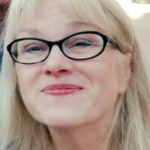 Beth M.
Moderator Pick
Beth M.
Moderator Pick
Creating the Environment
In a public library setting it can be easy to conduct programs and forward information that reflects back to us and affirms our world view. The conversation about disinformation begins with listening first, then sharing with our patrons about how to vet a news source, where does this person usually publish their articles, is there already a built in bias, does the publication check a reporters sources, are there other articles, data sources or authors cited to support an argument. But to be fair, most of this type of material is written at a higher level and can be seen…
Read the Full ResponseEvaluating Information
My go-to response on checking the validity of information is 1) corroborate 2) check the responses from established, legitimate sources.
1) Corroborate - Information that is being reported from several sources is far more likely to be accurate. Check to see if the information is available from other sources. Sometimes a story will be essentially parroted from another source. If that is the case, look for another source for corroboration.
2) Check the established sources - Checking with long-established sources of reliable information, newspapers with a reputation for careful journalism, government, and university sources, these offer…
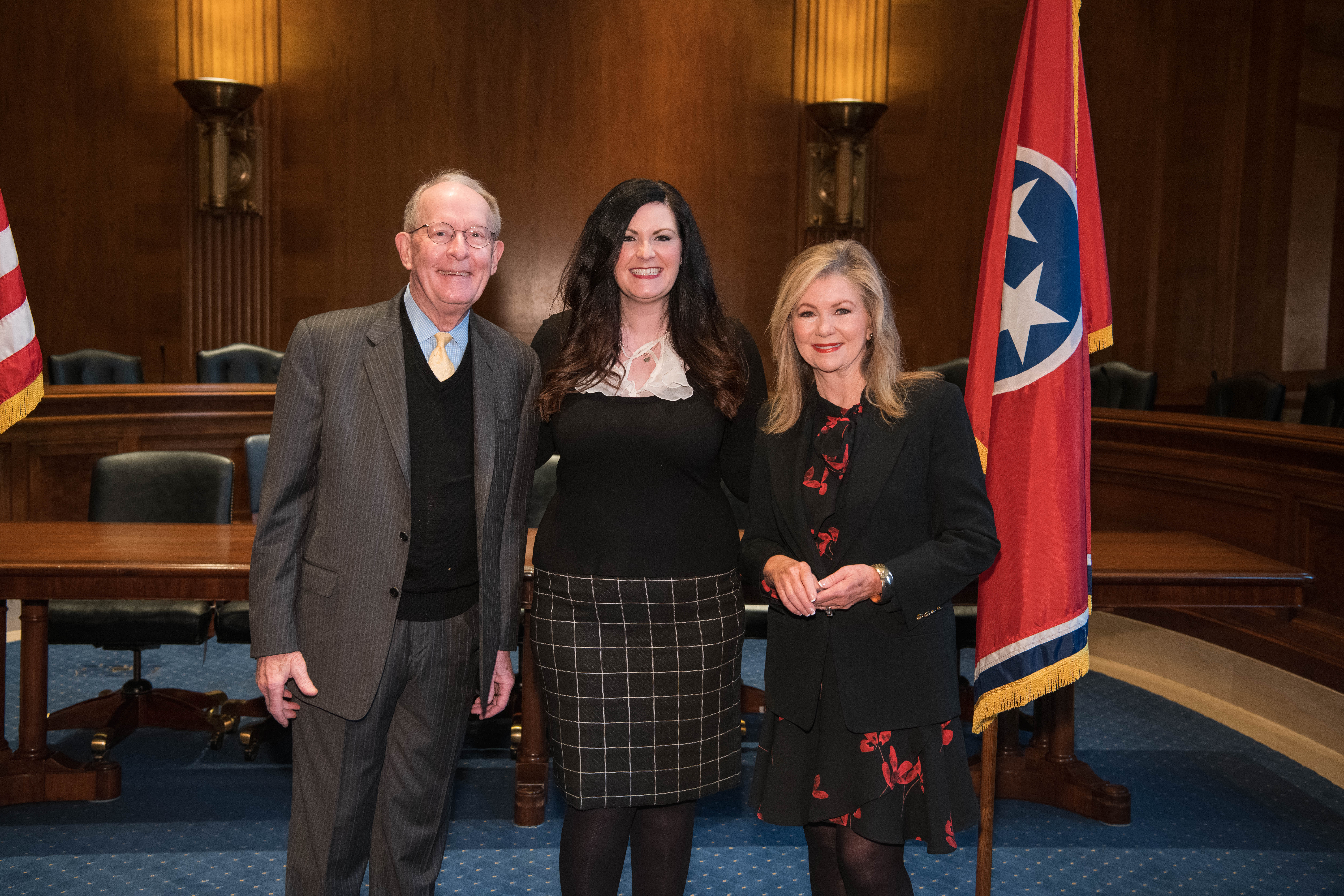 Sharon E.
Moderator Pick
Sharon E.
Moderator Pick
Consistent Terminology & Lateral Reading
In an ALA Policy Corps meeting yesterday, a member brought up the different terms we, as librarians, have for this topic: Information Literacy, Digital Literacy, Media Literacy, News Literacy, etc. They're right. We need ONE term that we use so everyone knows what we're talking about. One term to coalesce behind in order to build a strategic campaign.
Personally, I'd like to see Information Literacy (the term I currently use) integrated into the gen ed curriculum at the community college in which I work. I wrote a paper about this for an assignment last fall in my Ed.D…
Evaluating Sources
When I started in libraries 30 years ago, finding credible information took time, but it wasn't difficult. You may have to spend 2 hours looking through books to find the answer to a reference question, but it was generally assumed that a print media source from a reputable publisher would have factual information.
Now, on the Internet, you might find an answer in a matter of seconds, but that doesn't mean it's the right answer. And now, of course, we now realize that print resources may have certain biases too.
It's interesting to me that I have friends…
Motives, Word Choice, & Practice
We tell students to avoid biased sources, but that's honestly not possible. Nothing is neutral, so identifying those biases becomes important.
Sometimes the motives behind publishing are reasonably easy to discern, and that's a good place to start.
Does an inflammatory article come from a site selling merchandise (like Infowars)?
Is this think piece put out by a PAC with a clear electoral agenda?
Was a study funded by a corporation with a vested interesting in getting specific results?
Is this YouTube video monetized, and who benefits from that?
School Librarian
We need to teach our young people how to detect disinformation and how to go about checking for real information, particularly online. As a school librarian (and reading teacher), I wear many hats. I'd like to integrate more media literacy into my program.
Read the Full ResponseNews Literacy Toolkit
As part of an LSTA Grant, the Pacific Library Partnership developed a News Literacy Toolkit, https://www.plpinfo.org/news-literacy-toolkit/ The toolkit includes curated resources for librarians meet public interest in media literacy quickly and confidently. It has curated programming which can be downloaded, along with games and PowerPoints.
The goal is for us to teach our patrons how to identify and vet credible information sources. A forum was held with local journalists and was supported by The Trust Project and Journalism Program, from the Markkula Center for Applied Ethics at Santa Clara University.
Academic Instruction Services
Questions: "..how do you identify and vet credible information sources?
How do you share those credible sources with students and public library users?
What is a librarian’s role in helping the greater community find common ground in shared facts?"
1) Utilize library's search filters, look at associations of article authors to universities and businesses, utilize web sites to debunk news headlines.
2) Teach university students to utilize filters in article searches, selecting "peer reviewed" and "scholarly" for filtering information.
Also teach use of debunking sites and…
Evaluating information
To locate and vet credible resources I use a variety of strategies including reflecting on prior knowledge, analyzing the source (author, sponsor or publication, mission or purpose, date), see what others have to say about it, reverse image search or use wikipedia to dig into the source, lateral read to find other coverage and cross reference, and then refer to sources I trust and know to see how they report on it.
I share credible sources on my library website, through direct instruction with students, or through the teacher. At times I share via social media.…
Check your sources
When we go into schools to do database training, one of the first thing that we emphasize is to check your sources. A good example is to Google "Taylor Swift" and then to search in one of our biography databases. On Google, you will get her Instagram content, find out where she was last night, but not necessarily get the information that you would need for a report. A database has citations from reliable resources and has usable information. Hopefully by starting young, we are educating a future generation. A librarian's job includes media literacy, especially when working with kids…
Read the Full ResponseCredible Sources
Deductive reasoning plays a large role in choosing sources that are credible.
Does the article reflect more than one side of the story? Does the article come from a .org or .edu website? How is the source (news, social media) used by the contributor of information? I Is it a journal article? What is the source, as in who owns or funds the journal or article? Are the writers or providers of the information sharing credentials within or at the end of the article. If an article has an emotionally charged headline and appears to incite fear or feed…
Disinformation
Use trusted sources such as reliable newspaper websites and magazine websites
Read the Full ResponseVetting through inquiry
I often tell my students that an inquiring mind can lead to answers. From this standpoint, learners can begin to focus on the questions and curiosities that arise from information sources and refrain from viewing these sources as tasks requiring a vetting process. Through the course of inquiry and discovery, they begin to unearth the various voices and opinions that constitute a topic or conversation, and from there, they begin to see gaps, discord and misinformation. This process can be time-consuming, of course, but it is also prevents consumers of information from viewing a topic through a singular lens. Again,…
Read the Full ResponseResearching information sources
I always fall back on my information literacy background to get at the facts - identify and dismiss questionable information. When working with a student or faculty member, we should be teaching them to break down the URL, conduct lateral reading, and evaluate each source for authority, accuracy, reliability, objectivity, currency, and relevance. Examining sources together while explaining the analytical process is a powerful tool. In classes, we give examples of questionable websites for students to research and analyze on their own or in pairs.
Librarians are trusted professionals and occupy a unique position from which…
Partnerships for public programming featuring journalists
The "media" is often attacked using this general form of the word. Most of the negative rhetoric against the "media" is usually based on what people see on opinion-based "news" cable shows or Op-Ed columns. The general public doesn't understand there is a fundamental difference in journalists and the talking heads they watch often yelling at each other on TV. One of the problems here is public education.
Journalists from credible institutions follow very strict ethical standards in their writing and reporting. Facts are vetted, reviewed and opposing views are shared when reporting on a story.…
Selectors have to Be Both Intelligent and Trained
Credible information sources are identified in 2021 the way they always have been. One should be sure that materials selectors are versed in the notions of:
1. Authority--Reliable information sources are signed/attributed so that the background of the author(s) or originator(s) can be assessed. Education and experience in the field of knowledge or upon the topic being discussed are important factors if deciding if an information source is credible. Reliable sources include bibliographies and citations with footnotes. If new information is being relayed, sources are as transparent as possible with the research, including sample sizes or other…
engaging in legitimate debate
I also think public libraries could play a role in fostering healthy communication in person or on social media by promoting or holding discussions around works like:
Why Are We Yelling? The Art of Productive Disagreement by Buster Benson
Conflict Is Not Abuse by Sarah Schulman
Kill Reply All: A Modern Guide to Online Etiquette, from Social Media to Work to Love by Victoria Turk
Bridging Differences Playbook https://greatergood.berkeley.edu/images/uploads/Bridging_Differences_Playbook-Final.pdf?_ga=2.33030392.776663338.1604415157-255958577.1604060842 Libraries could also work with organizations like:
"Living Room Conversations"-- https://livingroomconversations.org/ OpenMind--…
Lessons Learned from Teaching Classes on Disinformation
I think the best way I can address the three forum questions is to talk about my experience teaching a class on misinformation over the past four years. After the 2016 election, when the terms “fake news”, “post-truth” and “alternative facts” were suddenly everywhere, a colleague and I created a 75 minute class. We based the class on a flier from IFLA, called How to Spot Fake News (which in turn was based on an article from Factcheck.org.) The class was also called How to Spot Fake News.
Of course, not long after that, the term…
conspiracy theories
One of the things I have considered, but I think it would be extremely difficult to pull off successfully, is a "conspiracy theory" book club.
From what I can tell there is a basic societal confusion with the term "conspiracy theory" itself. For some people, the term refers to a theory about conspiring that could be true, false, or preposterous, while for others the term automatically refers to a preposterous theory.
I was thinking a book club could formulate a list of criteria to run a conspiracy theory through to test its plausibility and…
Birdwatch feature on Twitter
This new feature on twitter (a community-driven approach to addressing misleading information) is already controversial but I thought I'd post it here because it falls under this topic:
https://twitter.com/TwitterSupport/status/1353766523664531459
 Jason Y.
Moderator Pick
Jason Y.
Moderator Pick
Addressing More than Credible Sources
To some extent, I worry that this prompt begs the question of whether or not patrons value that their sources are credible. At times, I feel that some segments of the library field are placing too much emphasis on traditional approaches to information literacy as a solution to disinformation. Unfortunately, there isn’t a lot of rigorous and empirical evidence that information literacy approaches are broadly effective in changing patron behavior. And, significant research indicates that disinformation campaigns are quite effective at exploiting our emotions, psychological biases, and even our identity to ensure that we become personally invested in alternative facts.…
Read the Full ResponseMedia Bias
Since mainstream news sources have become increasingly partisan, I think the best way to get the "full story" is to check sources against each other. I have found a couple of sites regarding "media bias" that I like and have posted them on our Library's Facebook page to help patrons navigate the news.
They are:
allsides.com (rates different sources according to bias and compiles the top news stories of the day and how those stories are covered by left, right, and center)
ground.news (lists the major news stories of the…
 Kristen C.
Moderator Pick
Kristen C.
Moderator Pick
Meeting Patrons Where They Are: Teaching skills through reference desk interactions and programming
It is paramount to teach patrons media literacy skills in order to give them the tools they need to discern credibility in sources. And to do this and to get these skills across, we have to meet people where they are. They aren’t going to come to us ask us for training; we need to incorporate it into what we’re already doing.
As information professionals, we must connect with our customers and fight the battle against misinformation and disinformation. That means having skills ourselves, and it means using our trusted position in society to help people…
Technical Skills vs. Information Sources
Instead of recommending online sources, I usually find myself in the role of advising people on how to use the sources they have already chosen. Better librarians than me have spent time trying to get people to stop using Google or Wikipedia. Instead, I try to provide an expert perspective on how to use these tools effectively. As a public children's librarian, the online research question I get asked most often is, how can I print out pictures of [fill-in-the-subject]? Children want my technical expertise, not my opinion on the credibility of a source. I do think it is possible…
Read the Full Response
